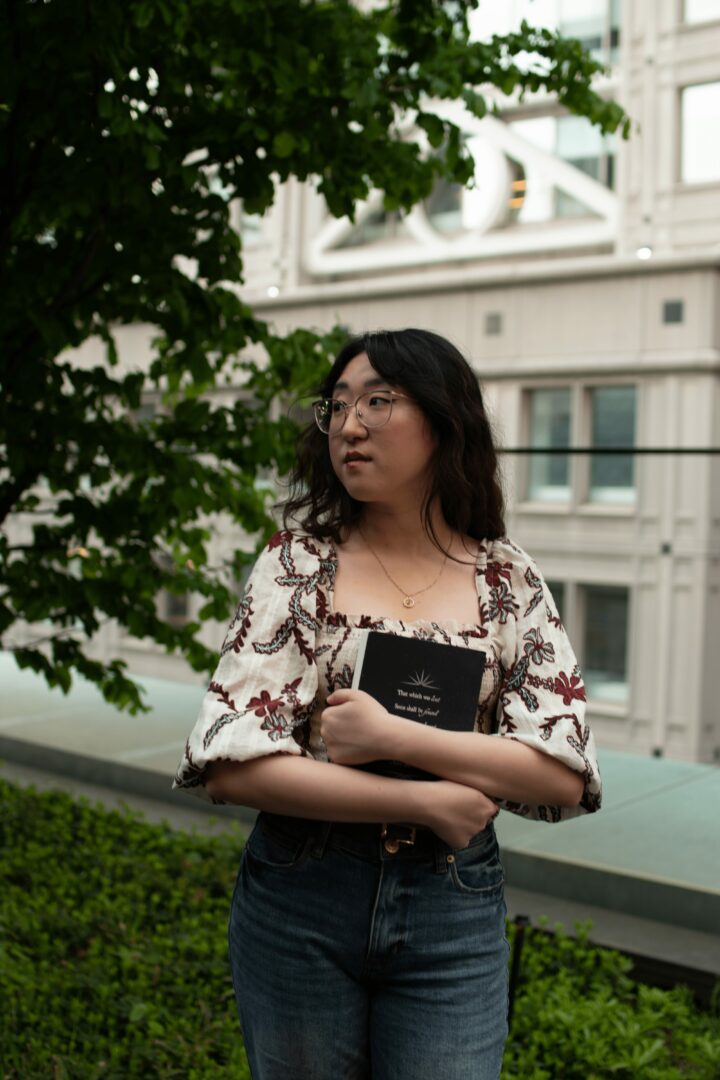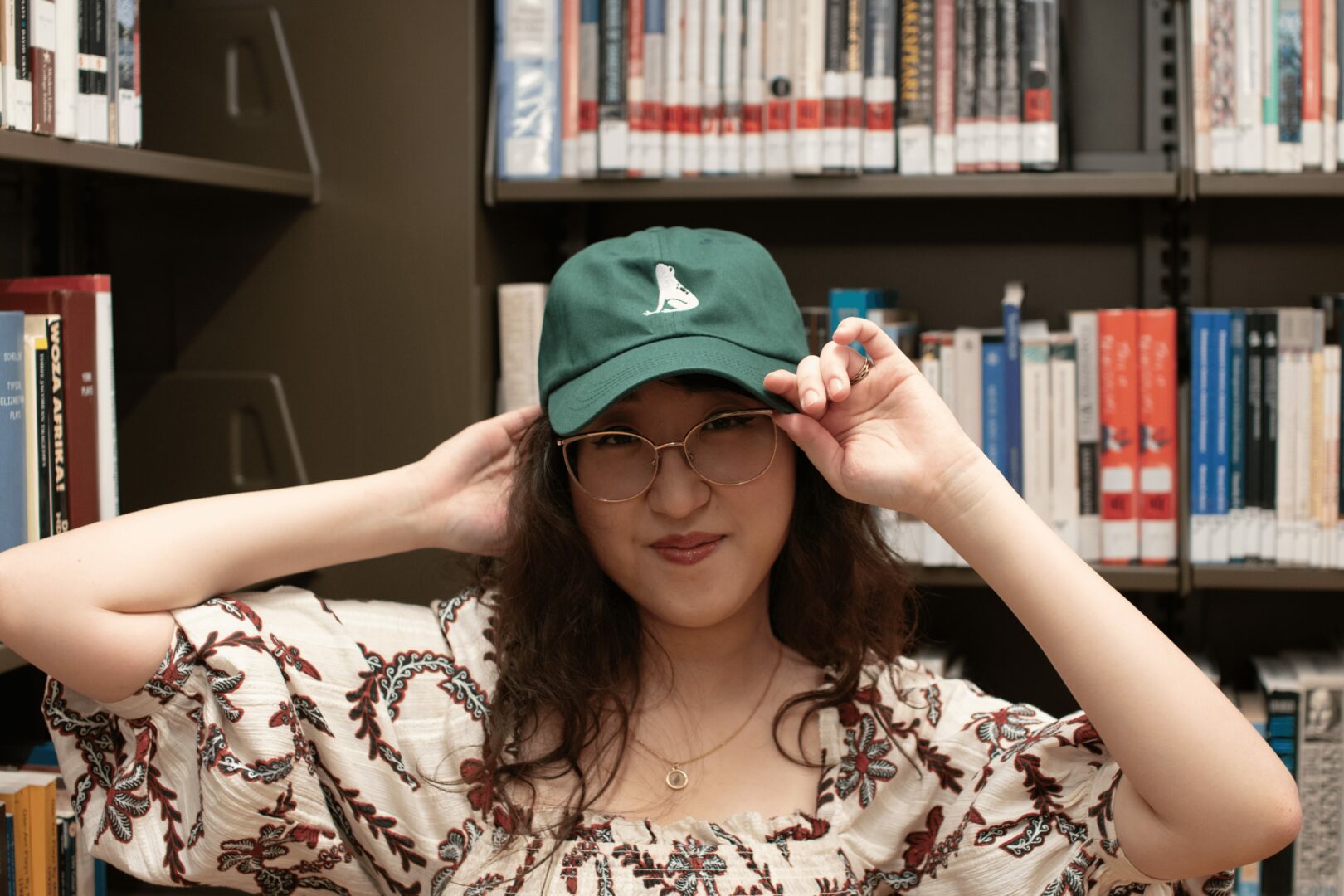We’re excited to introduce you to the always interesting and insightful Jamie Ryu. We hope you’ll enjoy our conversation with Jamie below.
Jamie, thank you so much for joining us today. Let’s jump right into something we’re really interested in hearing about from you – being the only one in the room. So many of us find ourselves as the only woman in the room, the only immigrant or the only artist in the room, etc. Can you talk to us about how you have learned to be effective and successful in situations where you are the only one in the room like you?
Publishing is a very white industry with very archaic systems. Myself and many other people in my community—whether than be the LGBT+ community or the Asian community or even the broader community of all people of color—are all working to ensure we bring different perspectives into publishing as a whole. I want to do right by all people. That means getting sensitivity readers when required. That means checking the language in our books. That means keeping my finger on the pulse of all that is happening in the world. That means knowing what my boundaries are and staying firm.
In a world that is not built for you, remaining steadfast in your beliefs and morals is key.

Let’s take a small detour – maybe you can share a bit about yourself before we dive back into some of the other questions we had for you?
I’m an editor who previously worked at Big 5s like Macmillan at HarperCollins. But now I’m the owner of Contrarian Publishing, an assisted self-publisher and author-subsidized publisher that works with authors to bring their stories to life. Contrarian Publishing looks for romance, fantasy, and science fiction novels in all age categories with profound messages at their core. We will also consider select mystery, thriller, and horror titles, as well as memoirs.
Our exciting new book Blood, Sweat & Queers releases on October 7, 2025. It is an anthology of vampiric love stories centering queer stories, and it’s partially a fundraiser for The Trevor Project.
The idea came to me back at the end of January and I quickly contacted my friend and colleague Margaret Hall—a writer at Playbill Magazine, an author, and a scholar of vampire literature—to see if she’s be open to co-editing the project with me. Vampires had explosive popularity in the 2000s and 2010s, but we want now to utilize the vampire as a queer allegory, with stories spanning the gamut from contemporary romance stories to total fantasy worlds to even imaginings of the future.
We just revealed the cover and we’ll be revealing all the authors throughout the month of June. You can learn more about the project at https://www.contrarianpublishing.com/bloodsweatqueers

Looking back, what do you think were the three qualities, skills, or areas of knowledge that were most impactful in your journey? What advice do you have for folks who are early in their journey in terms of how they can best develop or improve on these?
First, I could not function without my editorial instincts. Editorial is the beating heart of my business. This is something I’ve honed naturally over time and I work actively to maintain my skills by reading broadly and keeping up with the market. Anyone looking to become an editor needs to read, but not just read. You need to read critically and thoughtfully, looking at character development, story structure, syntax, and, yes, grammar.
Second, coming from the traditional publishing industry while also working as a part-time freelance editor was incredibly helpful to understanding the minutia of the business and all that goes into it. I knew before I started what my role and the roles of the people I work with would entail. I knew we would not just be looking at books, but looking at finances, at scheduling, at distribution, at promotion, etc. Every part, every role in publishing, is crucial to the success of a book. This is unfortunately something you need to do to learn. Publishing is a very opaque industry, though it is one of my goals in life to de-mystify the process for fledgling authors.
Third, sometimes you just need the audacity to try. There’s a statistic I’ve seen that says men get promoted more than woman, yes because of misogyny, but also because they just have the audacity to apply to roles that, on the surface, they have no business applying to. No one in their right mind would have thought that I—a twenty-five year old with no experience or education in running a business— should open a business. But I did, and it’s been the best decision of my life. In business, I think we should all try channelling the audacity of a confident, mediocre white man.

Alright so to wrap up, who deserves credit for helping you overcome challenges or build some of the essential skills you’ve needed?
My first author who has now become a trust friend, M.B. Thurman, was and continues to be crucial to my life and business. I first met M.B. while I was working at HarperCollins. She was a self-publishing author who was working on the sequel to her fantasy novel and she had left her corporate job to work for herself, running a bed-and-breakfast with her husband.
I offered my editorial services to her and we formed not only a working relationship, but a friendship that gave me the courage and perspective I needed to leave the publishing industry and forged a new path with Contrarian Publishing.
She was the first author we signed. The first two books in her Summoned Series, Summoned and Crossed, were Contrarian’s first titles, and book three, Forged, releases in September.
Contact Info:
- Website: https://www.contrarianpublishing.com
- Instagram: https://www.instagram.com/contrarianpublishing?igsh=Y2c2bHc4cGI3OGw2&utm_source=qr
- Facebook: https://www.facebook.com/contrarianpublishing
- Linkedin: https://www.linkedin.com/company/contrarianpublishing/
- Twitter: https://x.com/ContrarianPub
- Other: https://www.threads.com/@contrarianpublishing
@contrarianpublishing https://bsky.app/profile/contrarianpublishing.com


Image Credits
Charles Krause
so if you or someone you know deserves recognition please let us know here.




